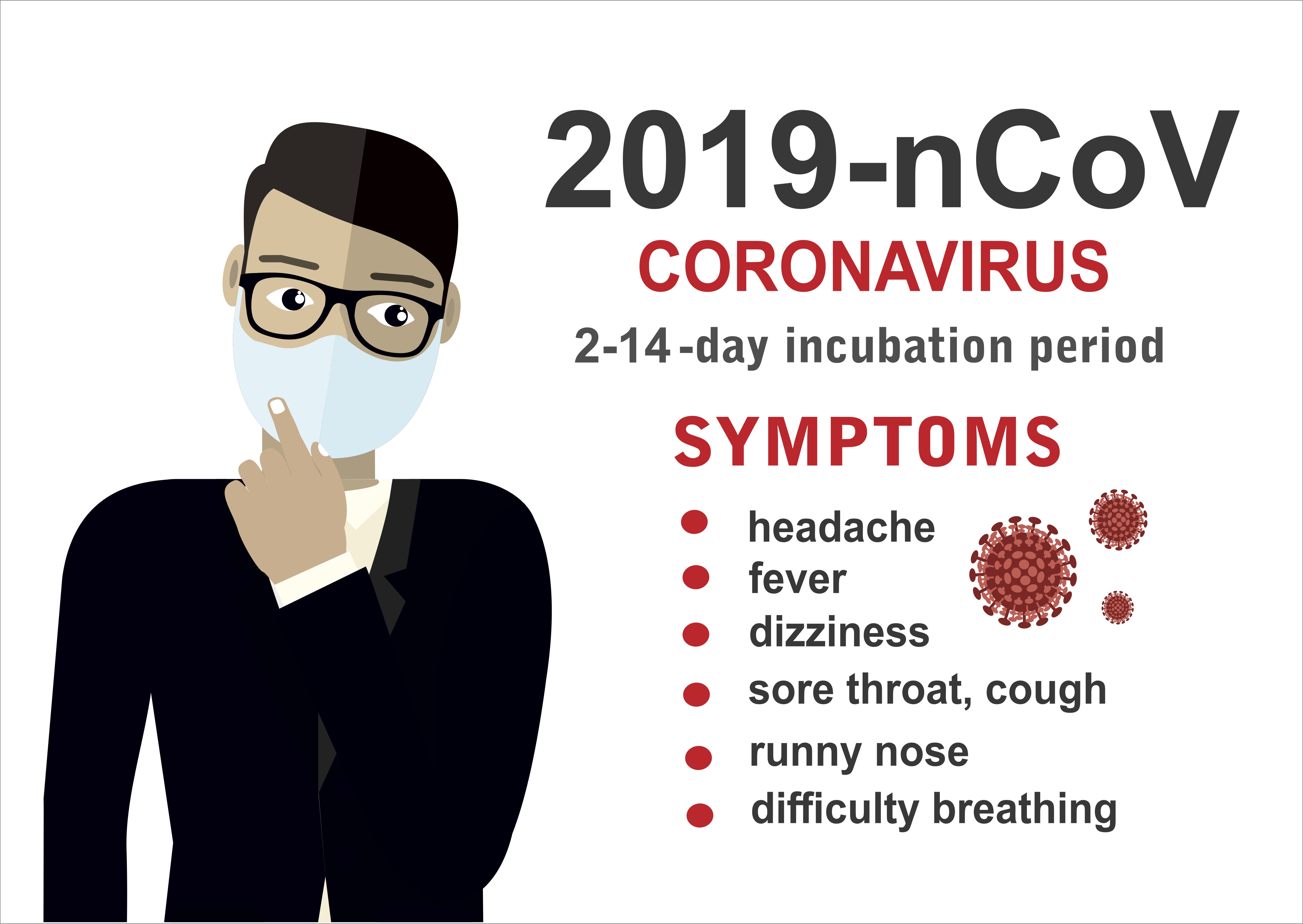 A lot is still to be learned about the coronavirus at the centre of the current global outbreak named COVID-19, but the basic symptoms are known. The World Health Organisation currently states that the incubation period is up to 14 days. In current cases, however, typically symptoms show in about 5 days.
A lot is still to be learned about the coronavirus at the centre of the current global outbreak named COVID-19, but the basic symptoms are known. The World Health Organisation currently states that the incubation period is up to 14 days. In current cases, however, typically symptoms show in about 5 days.
The current World Health Organisation figures say that based on 44,000 patients with the virus, 81% developed mild symptoms, 14% developed severe symptoms and 5% became critically ill. The death rate appears to be between 1 and 2% but the current initial figures are obviously unreliable, given that it is a changing situation. That said, the WHO state that about 80% of infected people recover without medical treatment and some people that become infected do not develop any symptoms or feel unwell whatsoever.
Usually, first symptoms are a fever followed by a dry cough. This can escalate to shortness of breath and some patients require hospital treatment. Other symptoms are a headache, tiredness, nasal congestion, sore throat, diarrhoea and muscle aches. Symptoms often start out as mild and gradually worsen.
If you are in a high-risk group – have existing medical conditions or are elderly – or if you develop a fever, cough and breathing difficulties, you should seek medical attention by phoning the medical services rather than going to hospitals or medical centres, as there’s is a risk that you could spread the virus to others.
Transmission of Coronavirus
COVID-19 is spread via human-to-human contact and indirectly from infected surfaces. The novel coronavirus can be easily transmitted through respiratory droplets. These droplets are liquids that can be emitted when we cough or sneeze. They harbour infection and act as a vector for the virus. The droplets are heavier than air and travel about one metre, before resting on whatever surface they land on. These can infect another person when they enter the body through the mouth, nose or eyes; this is why it is very important to avoid close contact with anyone who has fever, cough or any other respiratory symptoms that you suspect may be COVID-19.
Being within 2 metres of an infected person puts you at a high risk of contracting the infection. Skin contact includes hugging, kissing, or shaking hands. Always avoid touching your face, even when you are using masks.
If you are caring for someone suspected of having COVID-19, encourage them to use tissues and dispose of these correctly to avoid indirect contamination. You should use the correct protection such as a mask and gloves, but ensure you’re cleaning your hands correctly and often too! Protective equipment should be used and disposed of correctly, and surfaces cleaned using suitable wipes or chemicals which kill the virus.
Handwashing
You can do your part in stopping the transmission of COVID-19 through proper handwashing techniques. There are some cases where handwashing is a must, such as after using a toilet, coming into contact with any infectious material or when they are visibly dirty. In cases where you have come into contact with someone who is symptomatic, wash your hands immediately and frequently from then. Avoid touching your face and make sure you are wearing the appropriate PPE.
Some people just wet their hands when they wash them, then call that effective handwashing! However, proper handwashing includes using anti-bacterial soap. Alcoholic hand-gels are also effective but you should try and use anti-bacterial soap where possible. There are many areas of the hands which people miss including the backs of the thumbs, tips of the fingers and in between each finger. When not washed, the virus can survive for days and you will likely spread it to many people.
Learn more about infection control.

Comments
Pingback: Coronavirus: Are your stress levels increasing due to COVID-19 outbreak?
Pingback: FFP face masks and COVID-19 Coronavirus and medical masks
Pingback: Alcohol hand gel back in stock on the ProTrainings online store